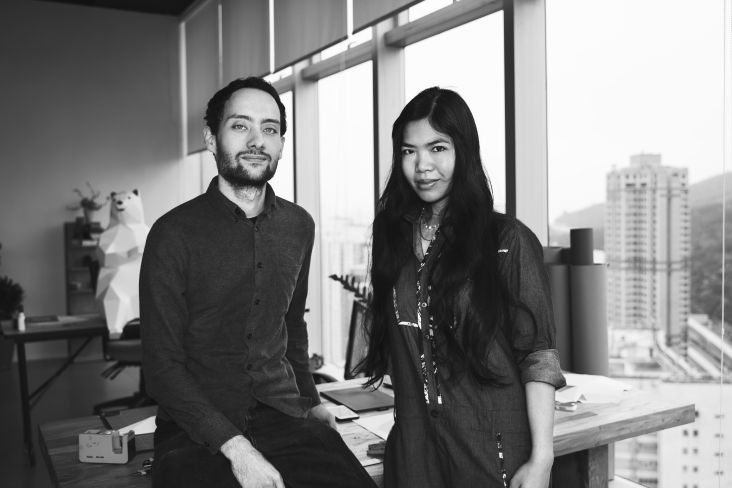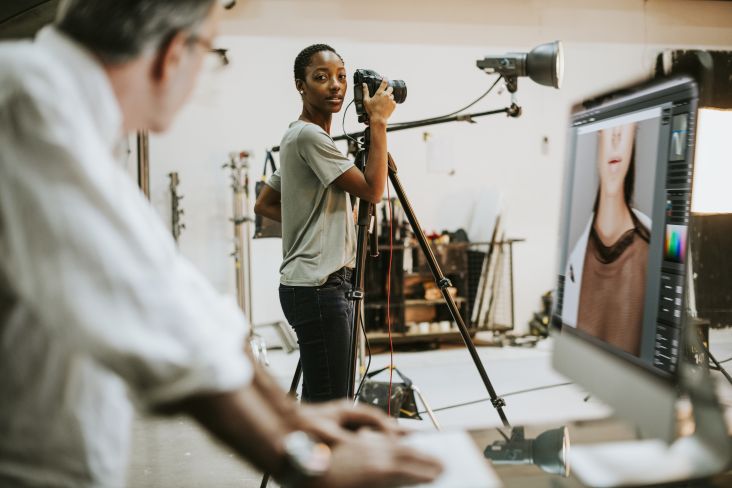
Image licensed via Adobe Stock
It's easy to get worked up about criticism and respond to it on an emotional level that appears to be out of all proportion. The reason for that is that the human brain's neural pathways were designed at a time when, if you were excluded from their social group, it would probably mean death in the jaws of a sabretooth tiger. And while no wild tigers are roaming the corridors of creative studios today, the same preprogrammed reflex still triggers when we get criticised: fight or flight.
So how do we rise above our core programming and learn to live with negative feedback? We asked the creative community, and we share their tips below.
1. Remove your ego from the situation
Coping with feedback begins by removing the ego from the equation. That means taking a step back and recognising that it's the work being criticised, not you as a person. This might seem obvious, but as we just mentioned, our primaeval brains don't see it like that, so you need to essentially "give yourself a good talking to", as they say.
"Try not to take criticism personally: it's about the work, not you," says content specialist Thomas Ridge. "This isn't always easy if you're emotionally invested in it, but you should try and see the criticism as something to learn from – if it's justifiable."
One technique to help with this is to add in some time and a few deep breaths. As designer Luke Tonge advises: "Always sleep on, and re-read, emails responding to criticism before hitting send."
Art director and writer Marc Diamond suggests another approach. "Sometimes critical feedback feels like a real fireball," he notes. "So write your strongly-worded response. Save it. Then go for a long walk. Mull it over. Maybe the feedback isn't as fiery as you first thought? Rewrite your response."
2. Assume criticism is well motivated
When we hear our work criticised, our immediate response is that the other person is attacking us, and they mean to do us down. Sometimes that might be the case, but generally, in the creative industries, most people are trying to be helpful and supportive. So it's best to assume the person giving the feedback wants a good outcome. Once you reframe the criticism in that way, it's easier to remove the emotion from it.
In other words, give your client, manager or boss some credit. They're not trying to make you unhappy, they're trying to help, and they also have valid experiences and thoughts they can share with you. As web designer Pete Clark says: "It helps to realise you're both on the same team. Differences of opinion are often down to one person lacking context."
3. Listen to the facts
Once you've succeeded in removing your ego, you're able to listen factually to what's been said, with the emotion taken out of the equation.
Yes, that's never easy in practice. But as Ben The Illustrator points out: "Even if it's brutal, it's never personal. For me, more often than not, the constructive criticism has led to a far better-finished product."
As a creative, one of your top skills should be empathy, so draw on that and use it to your advantage. As clay artist and illustrator Clay Disarray points out: "I try to remind myself that true emotional intelligence, which artists generally have in abundance, involves seeing things from all others' perspectives. So it can be a useful process, even if it burns a little here and there."
You can't control what other people say to you, but you can definitely control how you take it, how to react to it, and how to learn from it in order to grow.
4. Avoid being defensive or making excuses
It's not just the person giving criticism who (we'll assume) wants to help you grow as a creative. You do too! So resist any instinct to be defensive or make excuses for your work not being up to par. That might make you feel a little better in the short term, but in the long term, it will just mean you make the same mistakes over and over.
Instead, you need to be fully prepared to accept that you are not the greatest artist, designer or photographer who has ever lived (not yet anyway), and there is always room for improvement. Rather than battle against negative feedback, embrace it, and use it to improve your craft.
"For me, it is about avoiding the immediate reaction, but instead, take a moment and step back to be able to process it and respond," says Petra Smith, founder of marketing consultancy Squirrels & Bears. "If it's something I can change, I take the experience as a lesson learned and a way to improve and do things differently."
5. You don't have to agree
That said, you don't always have to agree with the criticism. If that's the case, the important thing is that you carefully consider why you disagree, find ways of arguing your point cohesively and diplomatically and work towards finding common ground.
As the digital artist Kato Trofimova puts it: "Sometimes it helps to deal with criticism by involving the client in the creation process. Dear client, you don't like the illustration? Okay, let's think together about how to make it meet your goals and objectives. It's like making the clients your partners in creative crime."
Similarly, Sarah Unwin, digital coordinator for BIMM Institute Manchester, urges you to: "Control the conversation, flip the power dynamic. Think about what areas of the work you want to improve on and ask for constructive feedback on that specific area. It stops the other person throwing a tsunami of uninvited thoughts, which can be not useful and feel combative."
6. Seek out feedback
So far, we've treated receiving criticism as a purely passive thing. But in fact, we should be going out and seeking feedback on our work as a way to improve both the individual creations and our skills as a whole.
That's especially important for senior product designer Elliot Rylands. "It's important to actively push for feedback in UX," he explains. "Testing our design and innovation work is pivotal to deploying human-centralised solutions, and feedback is something we actively seek. Design is an iterative process. Embrace feedback as a way to find the best solution!"
In truth, though, all creatives should follow this strategy. As illustrator and writer Ben Tallon says: "Constructive criticism is one of the most valuable learning tools we have. Seek feedback from all, especially those who are more experienced but discount nobody's comments. My career can be signposted using crucial comments from clients, peers, friends, and students alike, which sometimes initially stung, but ultimately fundamentally changed things for the better."
And remember, as artist and illustrator Carina Lindmeier puts it: "You can't control what other people say to you, but you can definitely control how you take it, how to react to it, and how to learn from it in order to grow. Everybody is not going to like everything that you do, but that's okay and is what makes you unique."

























